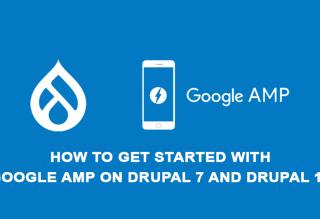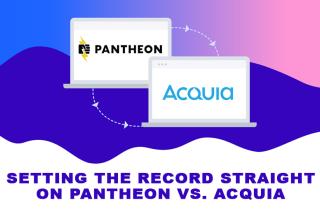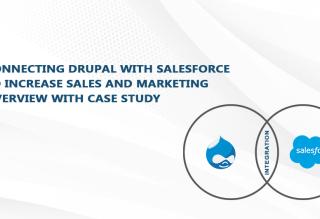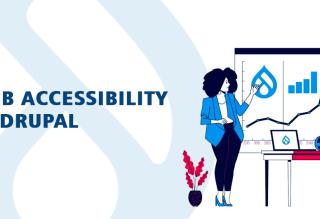Choosing the right Drupal development partner can crucially impact the success of a web project. Drupal has a powerful content management system which offers unmatched flexibility and customization abilities, but harnessing the full potential of Drupal, demands expert knowledge. And managing to find a competent and reliable development partner is essential to navigating the Drupal world.

This article will help you with an educated decision about the Drupal development agency for your project. Our article provides you with a detailed roadmap to help guide your decision-making process. From setting project goals and assessing technical skills to evaluating ongoing support and experience, our comprehensive approach will assist in evaluating all factors.
How Do You Choose the Right Drupal Development Partner for Your Project?
1. Experience and Expertise
All of them will claim experience and expertise, but you need to check whether they have the right background to support your project. They may have completed a trillion websites, but not in Drupal. Don’t let your projects be their study sample for Drupal.
Here we are listing some questions to help you decide whether the vendor has the experience and understanding in handling Drupal to deliver what you need:
How many Drupal websites have they created, and when was the last one created? Learn about the differences between Drupal 7 and Drupal 10, as they are significant.
Can they offer case studies of customer work that fits the requirements of your project? Perhaps your project depends on a certain integration, or you want to combine your web and application infrastructure. Find out how they have handled requests that are comparable to yours.
Are they able to connect with customers in your field? Certain suppliers specialize on just one area of work. Would they provide a lower pricing if they haven't dealt with clients in your industry and money is a concern? If they are attempting to diversify their portfolio, then there is an advantage.
Do they generally work with corporate clients, mid-sized enterprises, or small businesses? While Drupal is an excellent platform for businesses of all sizes, each has different needs. What background does your prospective partner have in helping firms expand, if you want to switch categories soon?
To what extent do they possess expertise in the projects they did not work on? It may seem counterintuitive to inquire about projects that aren't included in a vendor's portfolio, but if there are particular websites or digital experiences that really impress you, you want to know if a potential partner has the knowledge to analyze the solutions used and the interpersonal skills to talk about the potential processes that went into creating those sites or experiences.
2. A Skilled Project Team

When choosing a Drupal developer, consider their certification and the number of modules or themes they have contributed to and maintained. This is especially important for projects involving industry-leading products. Additionally, ask about the number of Drupal developers on the project team and the diversity of their roster. Consider if the vendor can offer support in other areas beyond development, such as user experience, content architecture, content strategy, and analytics. Consider factors like availability, cost, and offshore resources. Avoid wasting project costs on unnecessary services and ensure the team can deliver in specific time zones or offshore resources.
3. An Understanding of Project Scope
The project team's members reflect the project scope. Potential partners' understanding of your needs can be demonstrated through their submissions to your Request For Proposal (RFP). If you don't use an RFP process, consider if they prepare a Scope Of Work (SOW) for you. This will show how closely they understand your needs. Do they simply want to meet project requirements or are more imaginative and can articulate goals you didn't realize were within your reach? Can they anticipate needs you may not have identified? This could be a sign of investment in your success, as the best partners are equally invested in each other's growth and development.
A partner who is invested in your success will openly discuss project limitations and suggest workarounds. They should also consider their experience and potential solutions. However, there may be no easy way to achieve your goals. An honest conversation can help evaluate a partner's integrity, creativity, and trustworthiness, ensuring a successful partnership.
4. Community Involvement
The Drupal community, a large open-source platform, is dedicated to its security and improvements. However, not all content management system champions are equally involved. Some agencies and vendors invest more in Drupal, regularly contributing fixes and modules to ensure its growth.
5. Project Management and Communication Styles
To find a successful project partner, consider their communication style, tone, and Agile methodology. Determine what matters to you and choose a partner who shares your values or understands the trade-offs. For example, a partner with a sluggish communication style may not be suitable for delivering deliverables that consistently impress the C-Suite. It's important to be honest about your organization's strengths and weaknesses, such as a mercurial leader who changes quickly and expects others to adapt. Additionally, consider if your work culture clashes with theirs, as these differences can impact timelines and stress levels. It's crucial to find a partner who can balance your expectations and work-life balance, as these factors can significantly impact the outcome of your project.
6. References
When choosing a partner, consider their portfolio, responsiveness to queries, and strong team. Ask for references from recent clients, similar-sized organizations, or projects with similar scope. If a project in the partner's portfolio catches your eye, ask if you can speak to a representative. If not, provide reasons for not speaking with them. This will help you learn from their answers and client feedback. Remember to trust your gut instincts and seek references from similar-sized organizations.
7. Support and Maintenance
The level of support and maintenance needed after a Drupal build will depend on factors such as the in-house team's ability to handle the build, the choice of a hosting provider, and the build's self-service nature. Understanding architectures like headless versus hybrid or no-code/low-code tools can help inform expectations about support. For example, a no-code approach may require less support, while a hybrid approach may require more. Understanding these factors helps you better understand your team's needs.
Customizations and module selection play a crucial role in Drupal's flexibility and adaptability to business challenges. While Drupal offers flexibility and customizations, complexity can sometimes lead to added costs or risks. Bloated code-bases create more surface area, potentially opening up risks or burdening future upgrades and technology evolution. It's essential to consider these factors when choosing a Drupal platform.
Conclusion
To find the right Drupal development partner, it's crucial to discuss your goals and development possibilities. Professionals can provide technical advice and current solutions. Choose a partner with necessary skills, personnel, innovative solutions, and customer focus. A smooth flow of information is essential for successful cooperation. Contact us to learn more about how we can assist you with your next Drupal project.
The ideal Drupal development partner is not just a supplier-client relationship; it's a collaborative partnership that elevates your business. Following the steps outlined can lead to a long-lasting partnership that delivers your Drupal project with innovation and efficiency.



